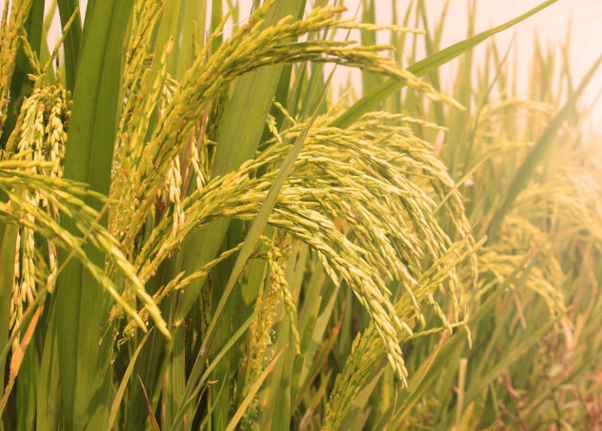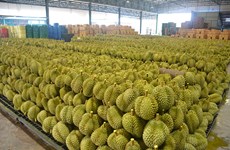Thailand to step up rice exports through inter-governmental deals
The Thai Government plans to boost rice exports by negotiating sales directly with other governments with the hope to support around 13 million local farmers – 20 percent of the country’s population.
 Thai rice - Illustrative image (Source: blackseagrain.net)
Thai rice - Illustrative image (Source: blackseagrain.net)Bangkok (VNA) – The Thai Government plans to boost rice exports by
negotiating sales directly with other governments with the hope to support
around 13 million local farmers – 20 percent of the country’s population.
Officials will be sent to major importers of Thai rice in order to accelerate negotiations, said Adul Chotinisakorn, director general of the Commerce Ministry's Department of Foreign Trade, adding that in some countries in Asia, rice imports are completely controlled by government procurement bodies.
Several Southeast Asian importers will be targeted, including the Indonesian government's procurement and logistics agency Bulog, the Philippines' National Food Agency and Malaysia's commodities procurement agency Bernas.
According to the ministry's statistics, Indonesia and Malaysia import around 800,000 tonnes of Thai rice per year, while the Philippines imports 1 million tonnes.
The government also hopes to engage traditional importers in the Middle East such as Iraq and Iran, each of which currently imports about 1 million tonnes of Thai rice annually.
Previously, government rice sales played a significant role in supporting exports, accounting for about 20 percent of the annual total of between 8 million and 10 million tonnes.
However, trade liberalisation in the past few years has made it easier to conduct private deals, allowing the government to take a step back.
Although demand has remained strong this year, Thai rice exporters say increased competition is making it difficult to operate. A stronger baht has not helped as competitors in Vietnam and India can now offer the crop at cheaper prices.
Limited production is also expected to cut exports this year, preventing the country from capitalizing on global demand. Farmers have been encouraged to grow other profitable crops such as cassava, corn and sugar cane.
The Thai Rice Exporters Association said it will closely monitor exports in the first quarter of this year and, if the baht continues to rise, may revise the 2018 export target to below the previous forecast of 9.5 million tonnes. -VNA
Officials will be sent to major importers of Thai rice in order to accelerate negotiations, said Adul Chotinisakorn, director general of the Commerce Ministry's Department of Foreign Trade, adding that in some countries in Asia, rice imports are completely controlled by government procurement bodies.
Several Southeast Asian importers will be targeted, including the Indonesian government's procurement and logistics agency Bulog, the Philippines' National Food Agency and Malaysia's commodities procurement agency Bernas.
According to the ministry's statistics, Indonesia and Malaysia import around 800,000 tonnes of Thai rice per year, while the Philippines imports 1 million tonnes.
The government also hopes to engage traditional importers in the Middle East such as Iraq and Iran, each of which currently imports about 1 million tonnes of Thai rice annually.
Previously, government rice sales played a significant role in supporting exports, accounting for about 20 percent of the annual total of between 8 million and 10 million tonnes.
However, trade liberalisation in the past few years has made it easier to conduct private deals, allowing the government to take a step back.
Although demand has remained strong this year, Thai rice exporters say increased competition is making it difficult to operate. A stronger baht has not helped as competitors in Vietnam and India can now offer the crop at cheaper prices.
Limited production is also expected to cut exports this year, preventing the country from capitalizing on global demand. Farmers have been encouraged to grow other profitable crops such as cassava, corn and sugar cane.
The Thai Rice Exporters Association said it will closely monitor exports in the first quarter of this year and, if the baht continues to rise, may revise the 2018 export target to below the previous forecast of 9.5 million tonnes. -VNA













